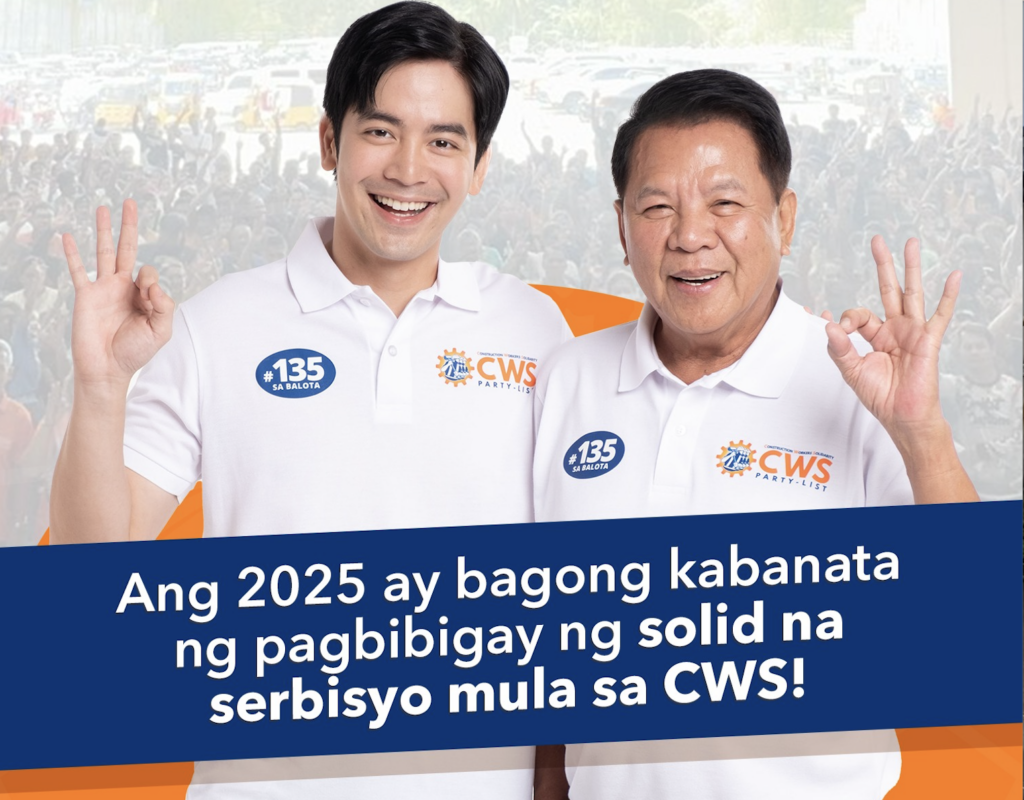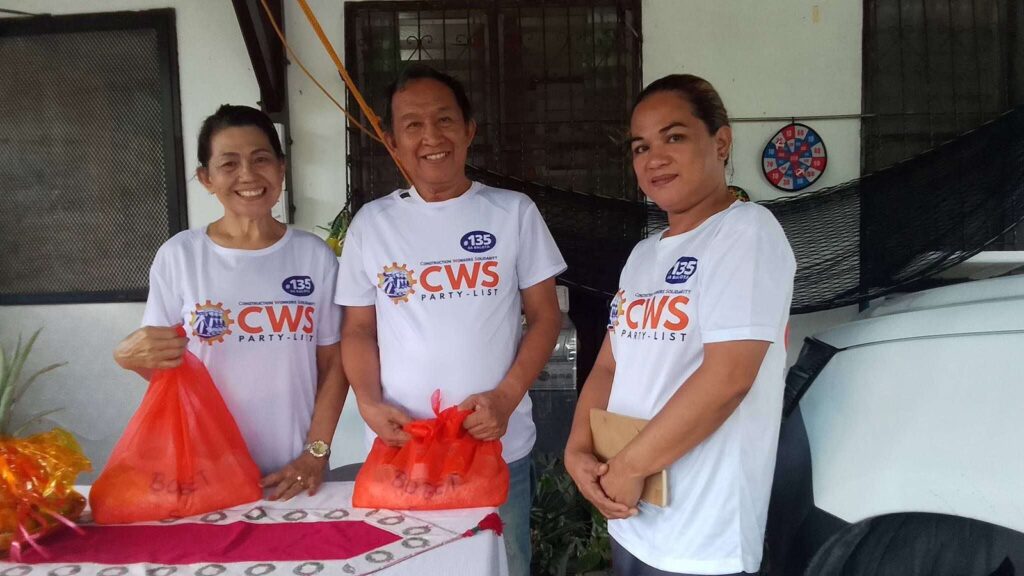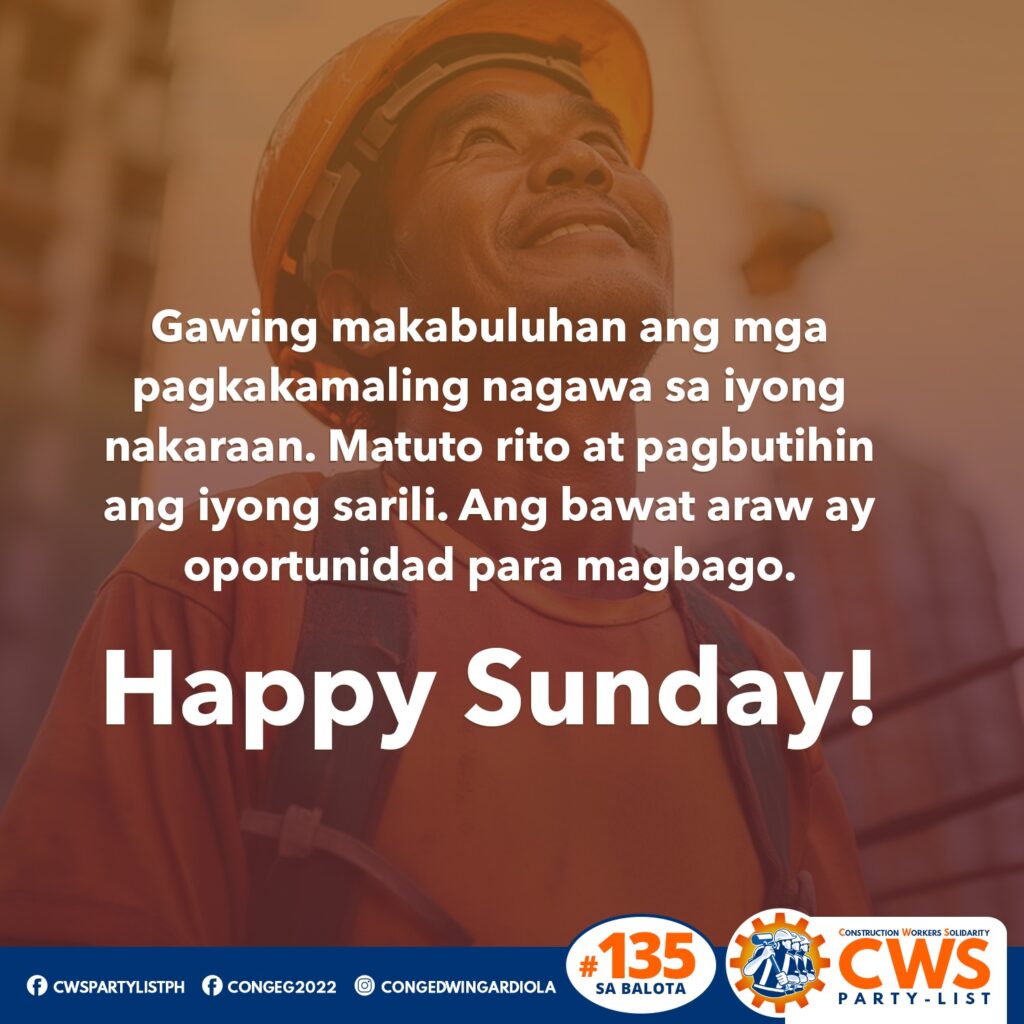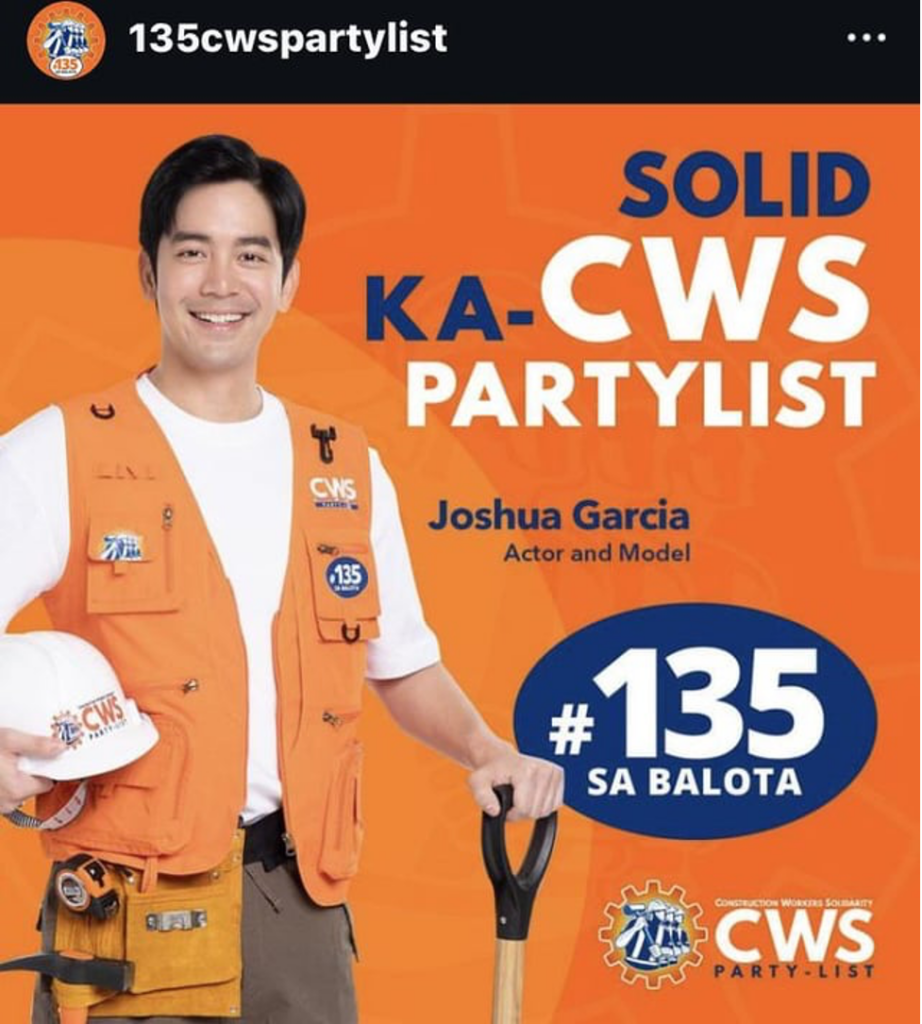In a striking example of how celebrity influence permeates the political landscape in the Philippines, actor Joshua Garcia’s presence on a billboard promoting the Construction Workers Solidarity (CWS) party-list has ignited a firestorm of criticism online.
The billboard, spotted by an eagle-eyed Reddit user while exiting the South Luzon Expressway (SLEX), quickly drew attention, fueling a heated discussion about the effectiveness and legitimacy of party-list endorsements, especially when they seem disconnected from the issues they represent.

The original Reddit post, which has garnered significant traction with 44 comments and 85 upvotes, questioned the authenticity of party-list representatives who are backed by individuals who appear to have little or no connection at all to the constituencies that they are meant to serve.
“It’s funny that they are the representatives, but why are these party lists represented by people who aren’t even close to being representatives? There are so many examples of party lists, and this one is just plain stupid,” the user remarked, encapsulating a sentiment echoed by many Filipinos.”
Why celebrity endorsements are being questioned
Critics have long pointed out the shortcomings of the party-list system, particularly its drift from the original intent of representing marginalized groups. For instance, the use of celebrity endorsers who don’t even represent the sector they endorse seems to have become the norm rather than the exception; this is rather sad since they are role models.
Celebrities are still the most searched persons on Google nowadays but they are just being used to help win votes in a variety of ways. “Maybe some of you are surprised to hear that I support the CWS party-list; it’s because actor and model Joshua Garcia endorses it,” one Redditor commented.
“The fundamental reason the party-list system here is so bad is that it no longer has to represent only the underprivileged. It can stand for almost anything,” another Redditor posted, suggesting a broader disconnect between party branding and actual representation.
Despite not being a candidate or official representative of the CWS, Garcia’s image features prominently in their promotional materials, including greeting cards and educational posters where he is dubbed a “solid ka-CWS.”
His endorsement seems to serve more as a marketing ploy rather than a genuine advocacy for the construction workers’ rights and needs, raising questions about the authenticity of celebrity endorsements in politics.
The presence of celebrities in the campaign landscape is not limited to Garcia.
Luis Manzano, a television host and aspiring politician aiming for the position of Batangas lieutenant governor, also spotlighted the CWS party-list, advocating for their cause while further intertwining celebrity status and political backing.
The CWS claims to advocate for the rights and welfare of Filipino construction workers, but the effectiveness of such campaigns, especially those propelled by celebrity endorsements, remains suspect.
The criticism doesn’t end there.
A very “flexible” party-list system

Other public figures such as Vice Ganda and Toni Gonzaga have also partaken in endorsing various party-lists, with Vice Ganda advocating for the Angkasangga party-list dedicated to gig and informal workers.
Vice Ganda has previously articulated the importance of respect and support for these workers, indicating a more personal connection to the cause.
Toni Gonzaga, meanwhile, has thrown her support behind the BBM (Bangon Bagong Minero) party-list, which seeks representation for miners, aligning herself with a candidate who shares her political leanings.
The flexibility of the party-list system has often been called into question. Philippine law stipulates that party-lists are meant to provide a voice for marginalized and underrepresented sectors.
However, a 2013 Supreme Court ruling broadened this interpretation. The ruling stated that not all party-list organizations need to exclusively serve underrepresented groups, allowing a more diverse array of parties to compete for legislative representation.
Currently, 156 party-list organizations are vying for seats in the House of Representatives in the upcoming elections, highlighting the competitive nature of this political avenue.

As the campaign period starts on February 11, 2025, the spotlight will undoubtedly remain on the interplay between celebrity endorsement and genuine representation.
As discussions continue on platforms like Reddit, one thing is clear: the public’s growing skepticism toward the party-list system and who truly represents vulnerable communities is a call for reflection and reform.
As the lines between celebrity and politician blur, voters are left to navigate the landscape of endorsements with caution and an eye toward true advocacy.






